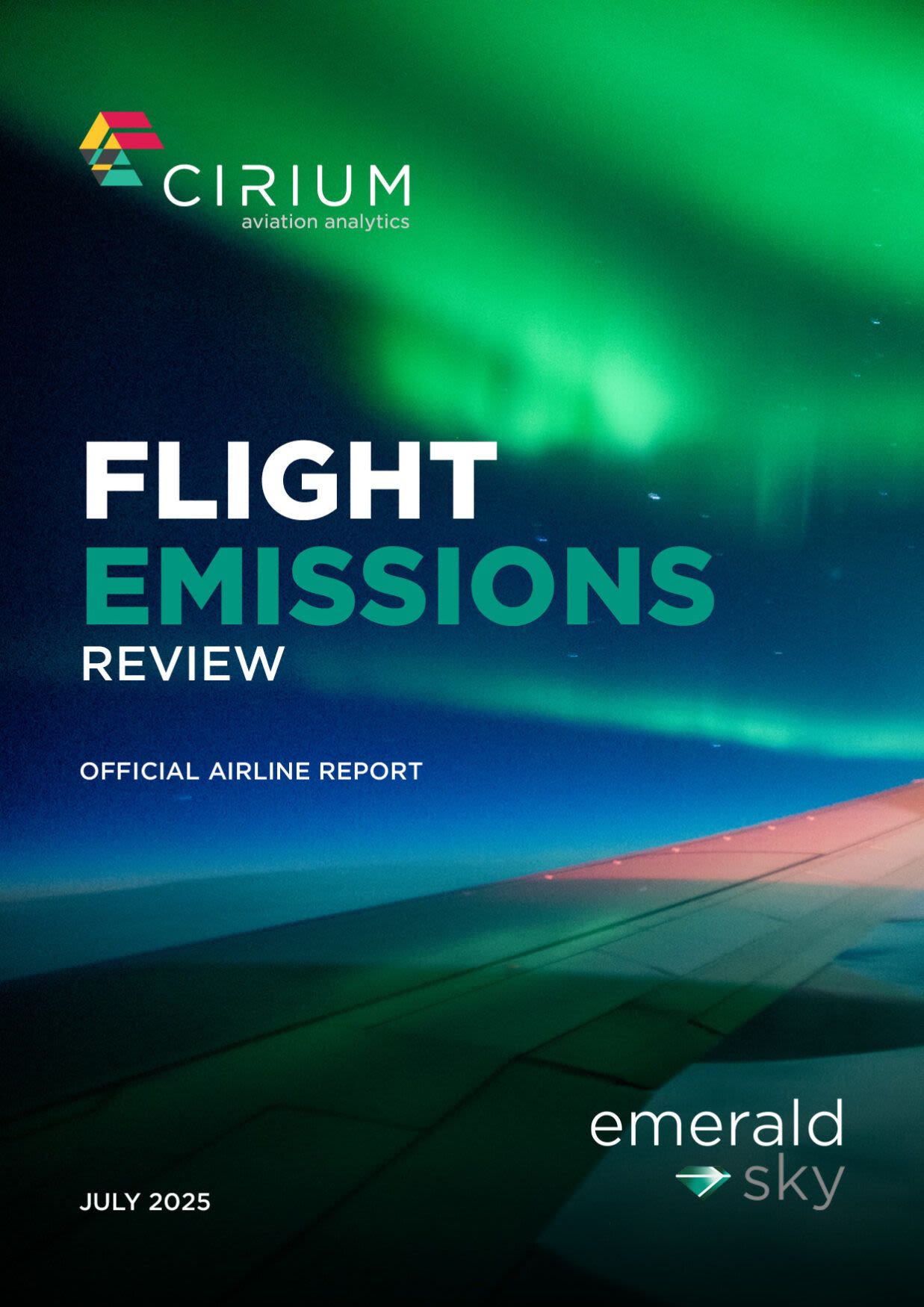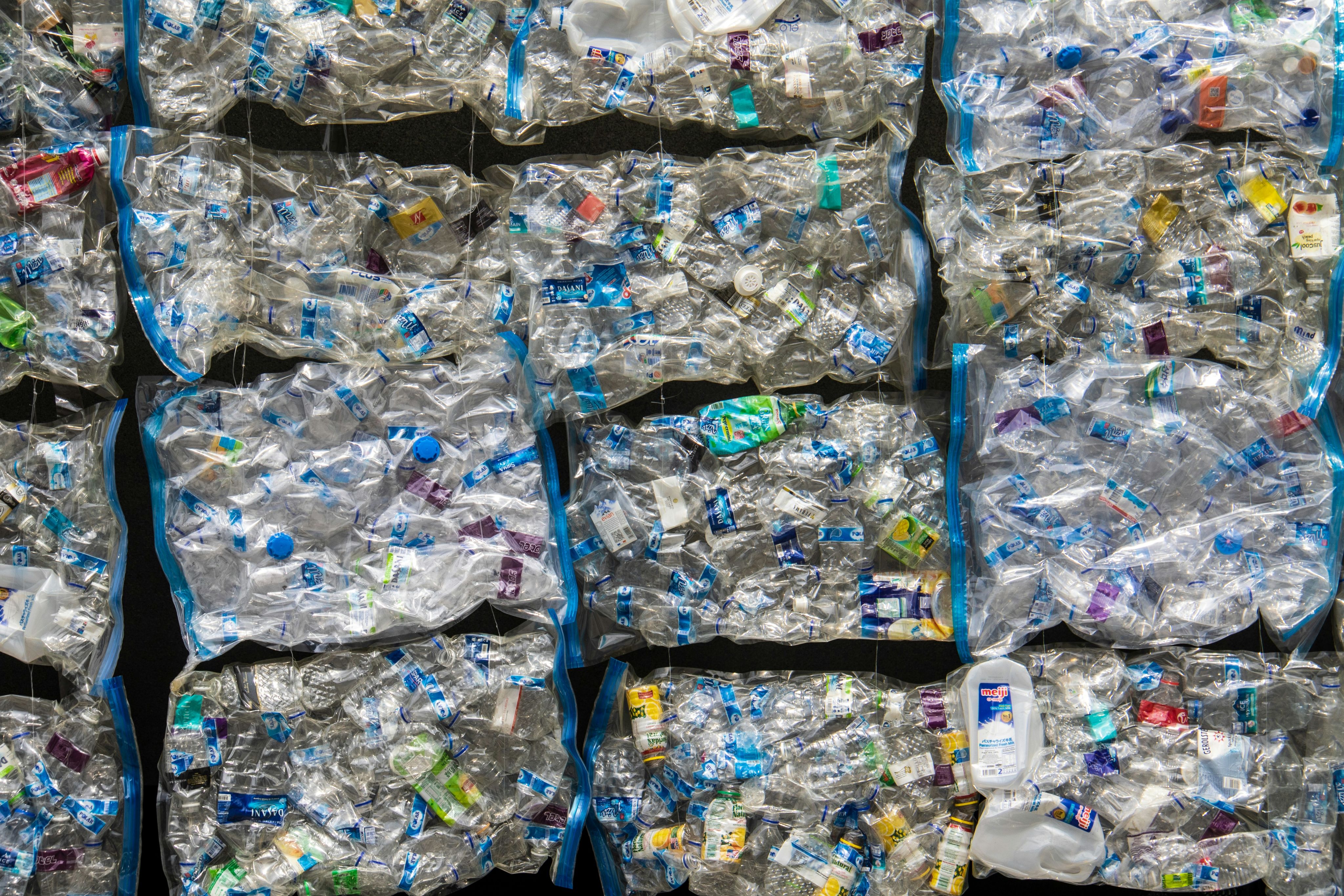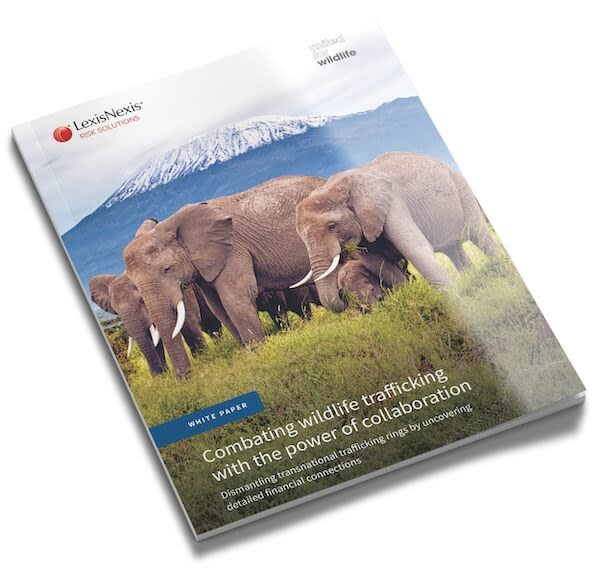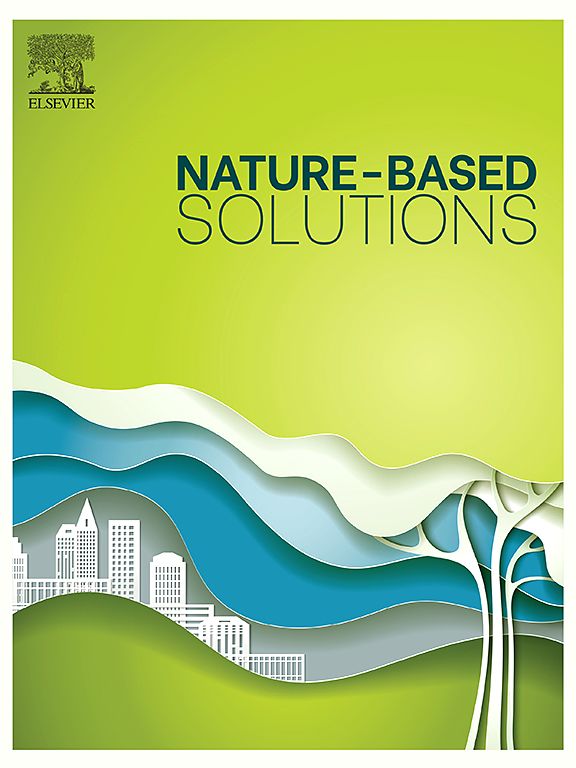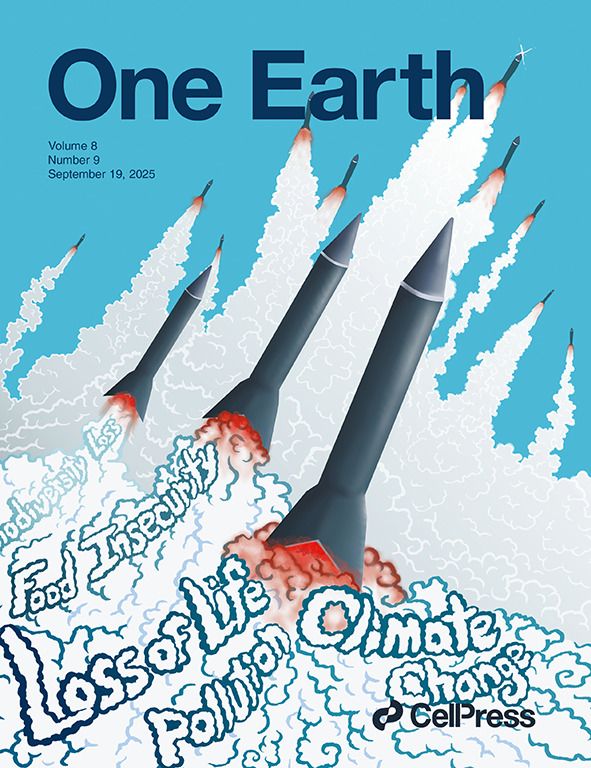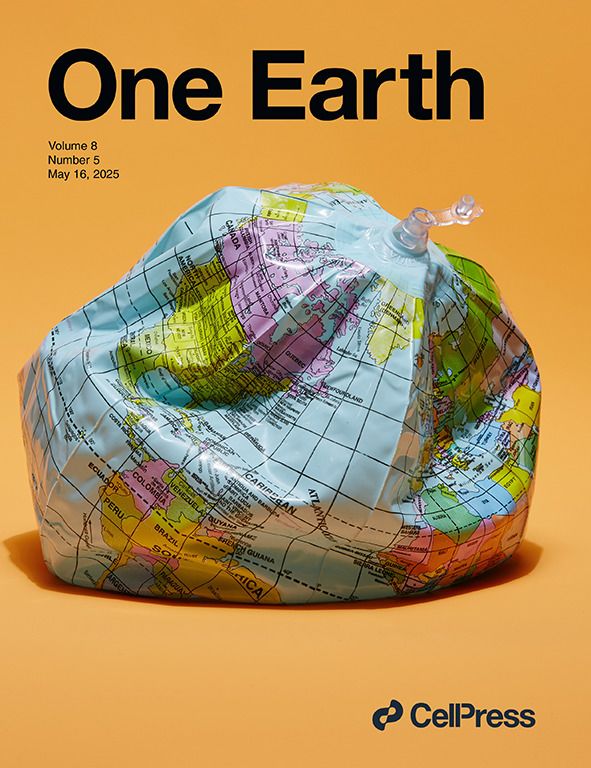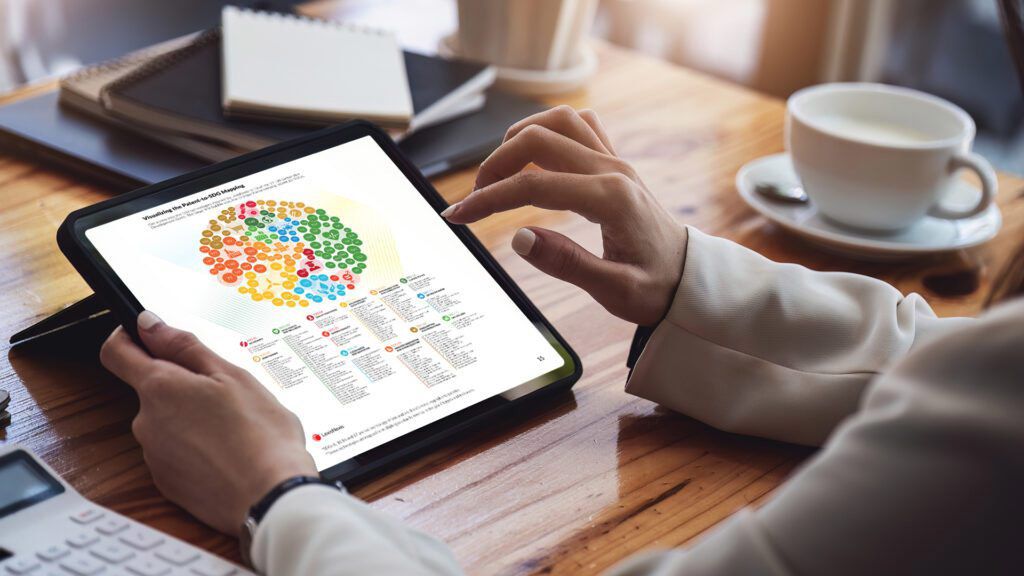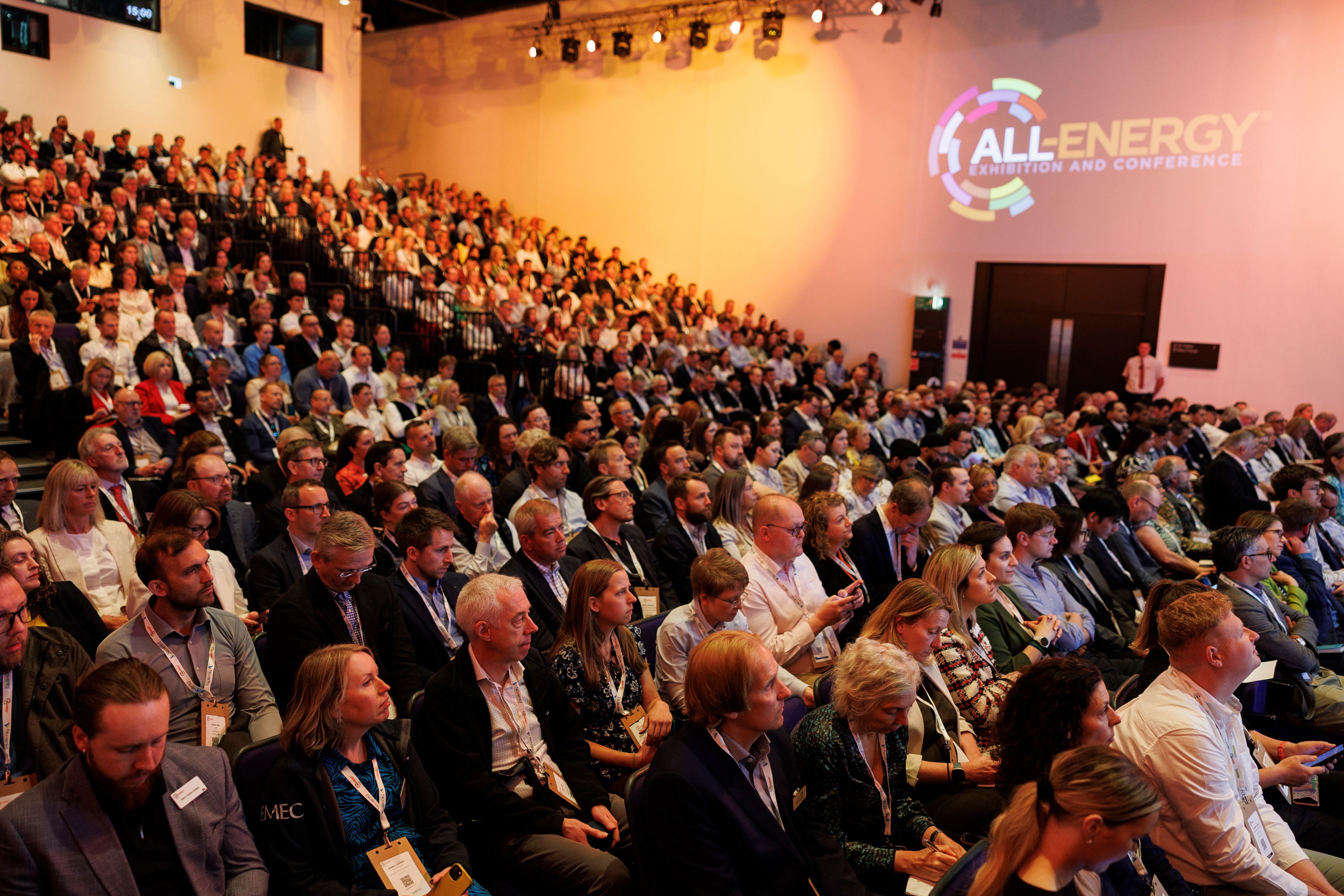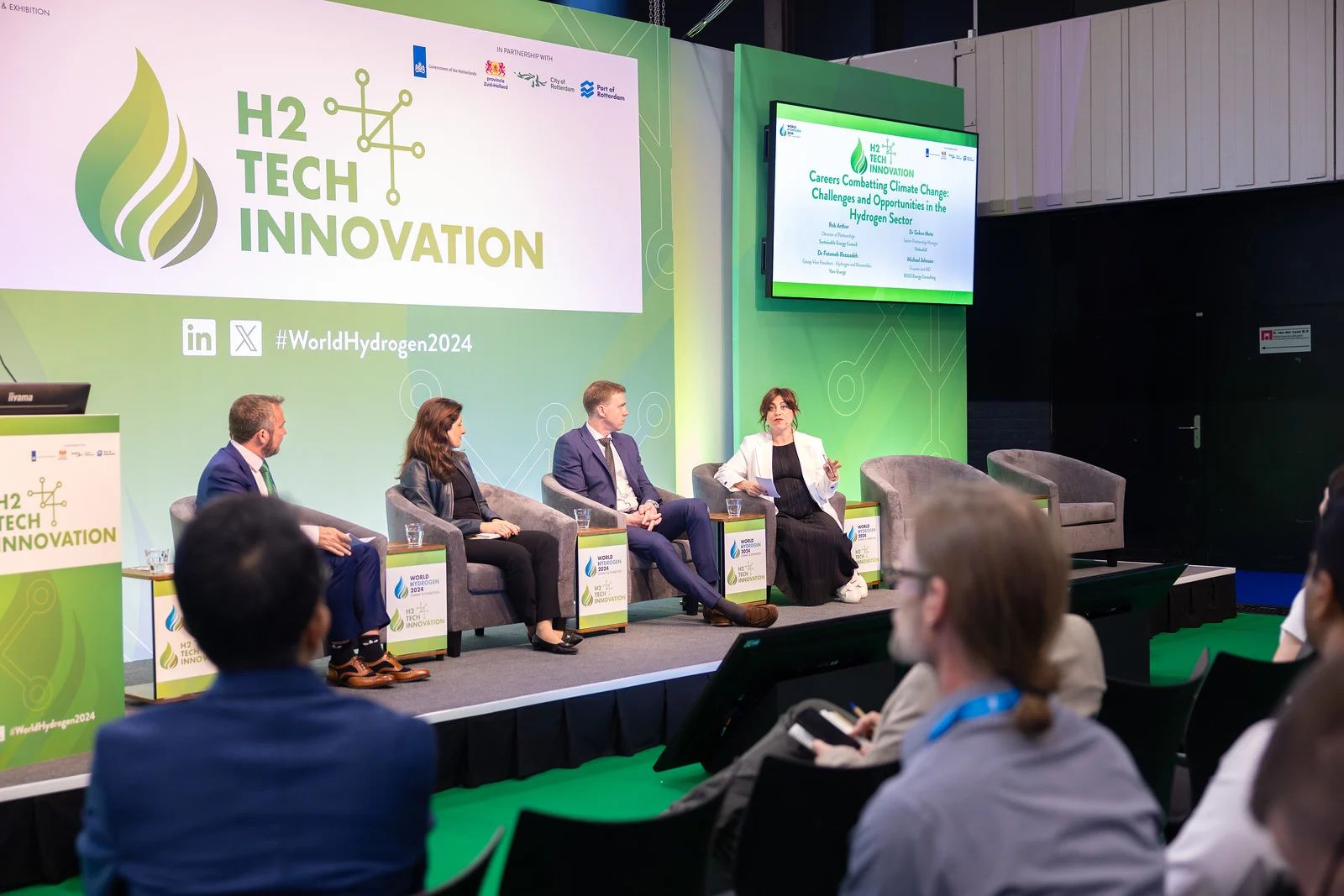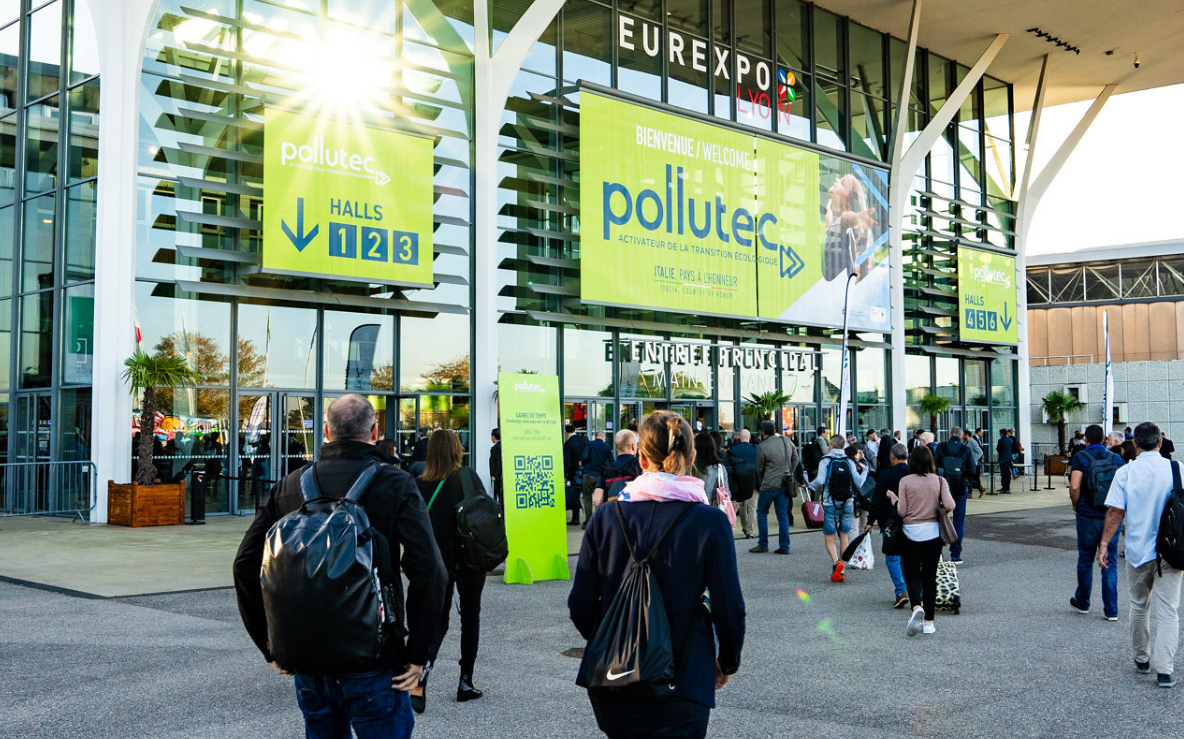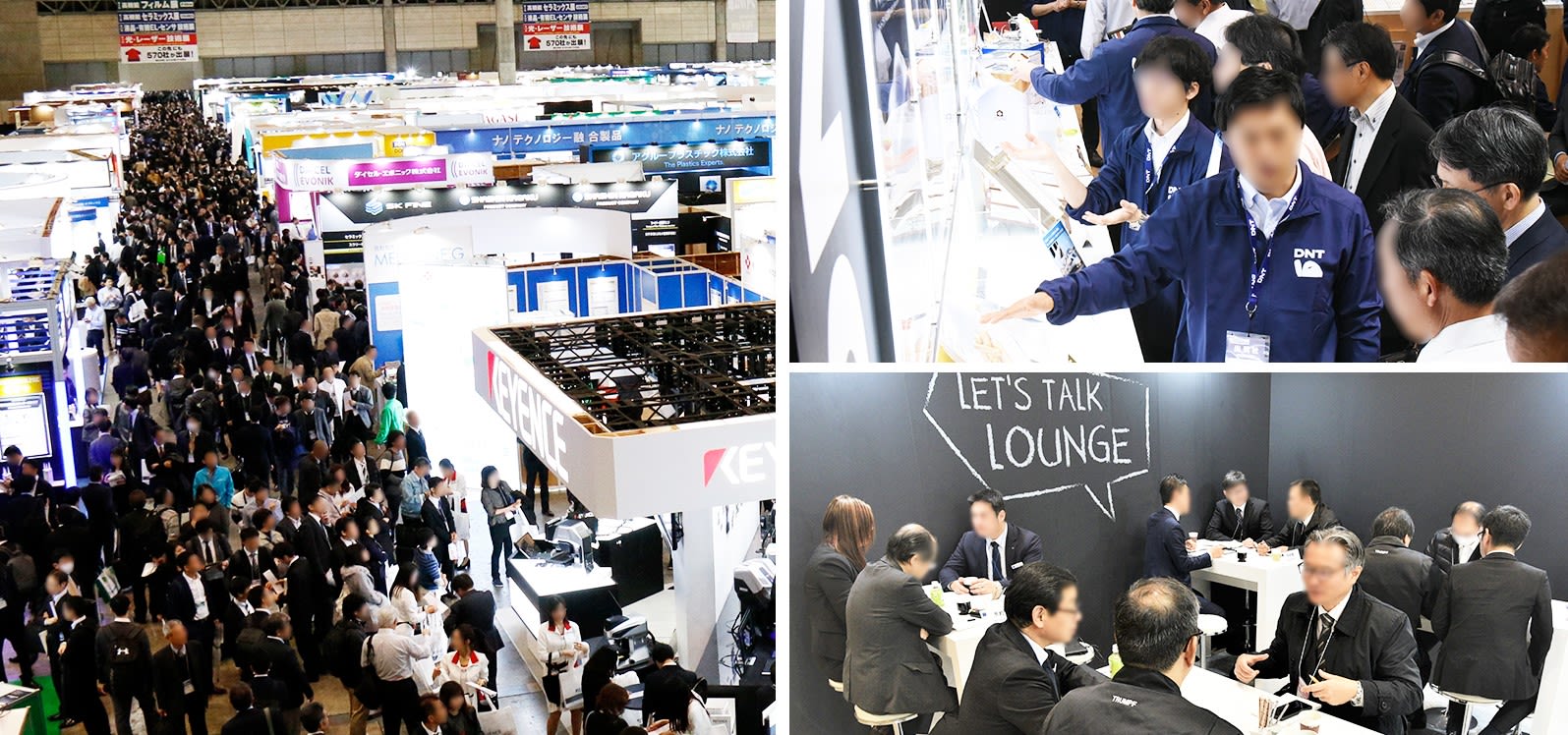TEN RELX SOLUTIONS
Shaping a more sustainable future

Information, analytics and data are essential components of sustainable development - empowering businesses, communities and decision-makers with the insights needed to transform challenges into opportunities, to foster innovation and to progress toward a more sustainable future.
Across RELX we focus on our unique contributions - where we can make a positive impact through our knowledge, resources and skills and this includes universal, sustainable access to information.
Our products and data-driven solutions, from across RELX’s business areas of Risk, Scientific, Technical & Medical, Legal and Exhibitions, help to advance customer outcomes and address societal challenges.
As a United Nations Global Compact signatory, RELX is committed to upholding its Ten Principles on human rights, fair and inclusive labor practices, environmental stewardship, and anti-corruption. This commitment also embraces principle nine, which supports the development and dissemination of environmentally friendly technologies.
Here we showcase ten RELX solutions helping to shape a more sustainable future.
"Corporate responsibility at RELX begins with our purpose: to benefit society through our products and services which reduce risk and increase financial inclusion; advance science and health; promote justice and the rule of law; and bring communities together and facilitate markets. With a continuous focus on innovating with integrity, we provide our customers with confidence and competitive edge to make informed decisions and further sustainable growth."

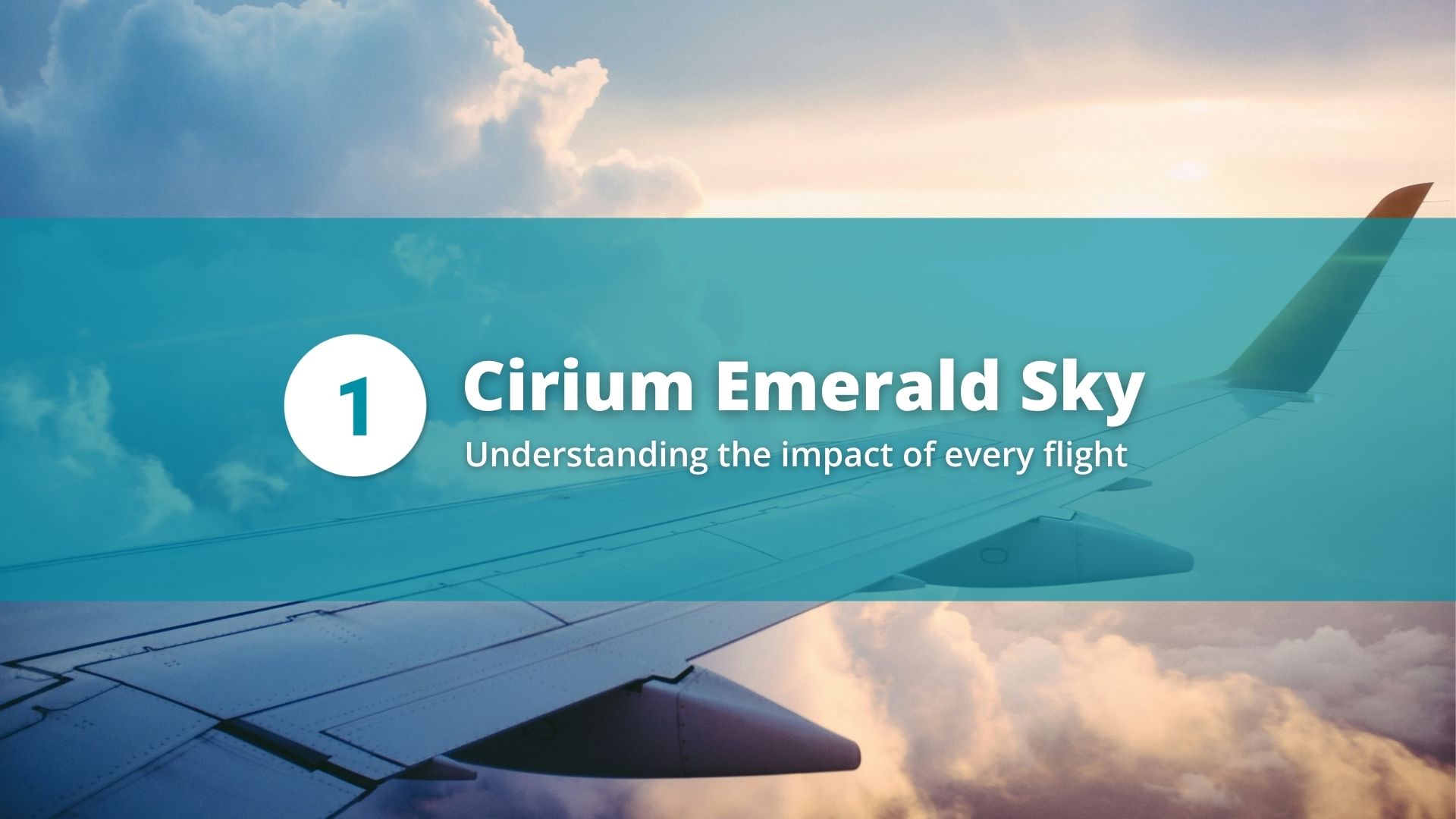
Aviation is among the hardest sectors to decarbonize, contributing about 2.5% of global energy-related CO2 emissions – a figure that will only increase as passenger demand is set to double by 2040.
EmeraldSky, a ground-breaking tool developed by Cirium, part of LexisNexis Risk Solutions, precisely measures aircraft and flight CO₂ emissions factoring in elements such as aircraft model, engine type, age, duration, passenger count and cargo capacity. Emerald Sky empowers businesses with insights for a competitive edge and a more sustainable future for aviation.
In 2025, Cirium released the Flight Emissions Performance Review, the official airline report giving stakeholders across the aviation sector an accurate, transparent, data-backed view of emissions performance. Insights include comparison of the world's 100 largest carriers, ranked by their CO₂ per available seat kilometer (ASK) and route specific improvements, identifying the most significant year over year reductions in CO₂ by route.
Cirium’s webinar, “Rethinking flight emissions: the case for time-based CO2 calculations” brought together experts from RouteZero and Asset Impact to discuss why the industry needs more robust, data-driven methods for tracking and reducing emissions. The webinar highlighted that traditional “great circle distance” models are too simplistic, advocating for time-based, data-driven calculations that reflect aircraft specifics, operational realities, and weight variations. This granular approach, exemplified by Cirium’s EmeraldSky methodology, enhances emissions accuracy, informs corporate travel decisions, guides sustainable investments, and combats greenwashing, thereby supporting immediate and future decarbonization strategies in aviation.
“This is more than a ranking. The Cirium Flight Emissions Performance Review is designed to support smarter planning, foster collaboration, and help aviation move further and faster towards its sustainability ambitions.”

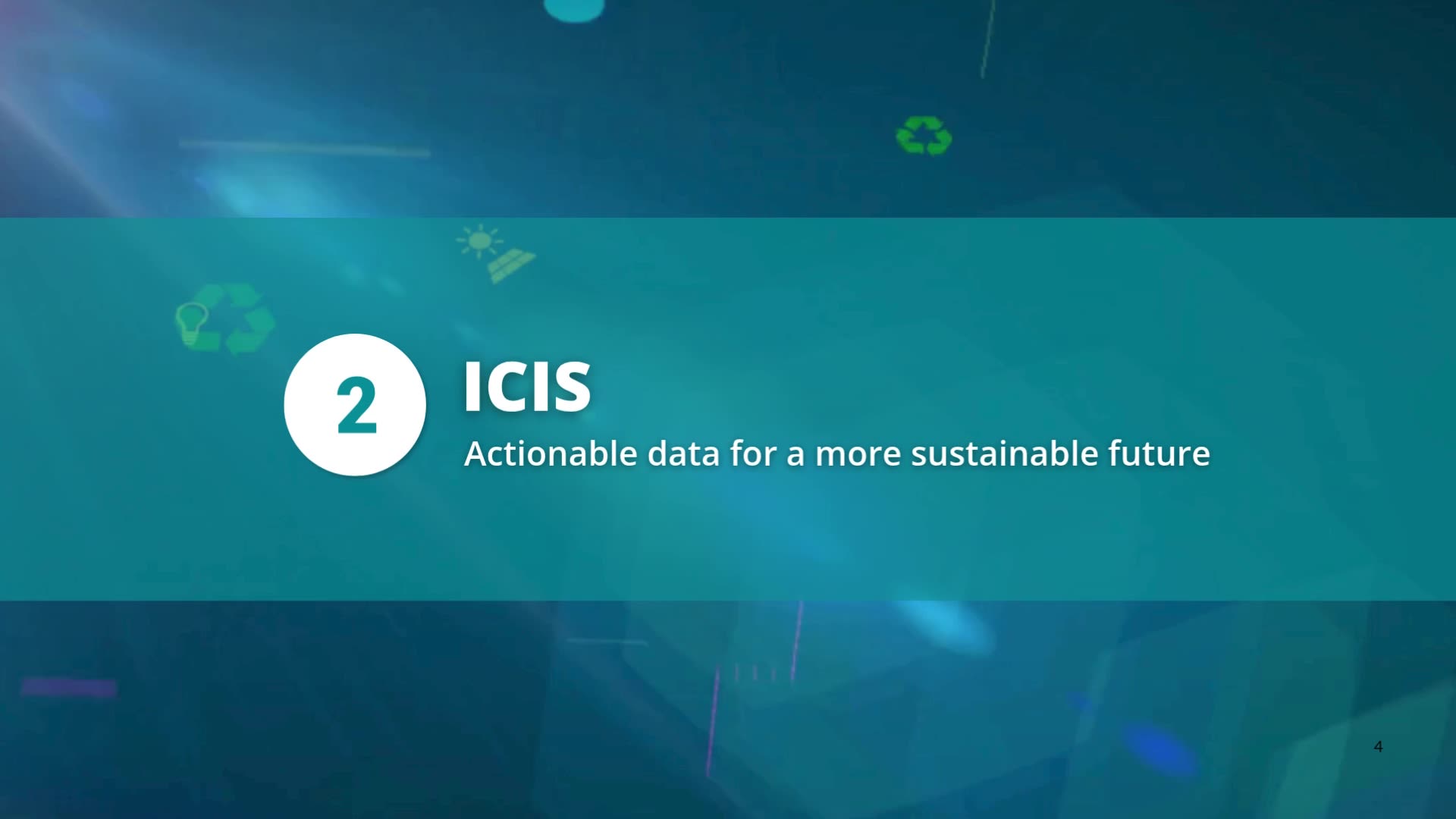
The transition to a more sustainable future in the energy and chemical industries relies heavily on robust data and actionable insights. As these sectors face mounting challenges from stringent regulations to evolving market demands, real-time, granular data empowers industry leaders to make informed decisions, optimise resource allocation and strategically invest in greener technologies. This data driven approach is essential for identifying innovative solutions, reducing carbon emissions and aligning commercial competitiveness with ambitious sustainability goals.
As the circular economy takes shape, the transition to non-fossil fuels and recycled materials must be managed in a way that is both sustainable and meets commercial objectives. ICIS' data and insights connect complex plastic and feedstock markets to optimise valuable global resources.
Read more about how ICIS insights are helping the chemical and energy sectors transition to a more sustainable future.

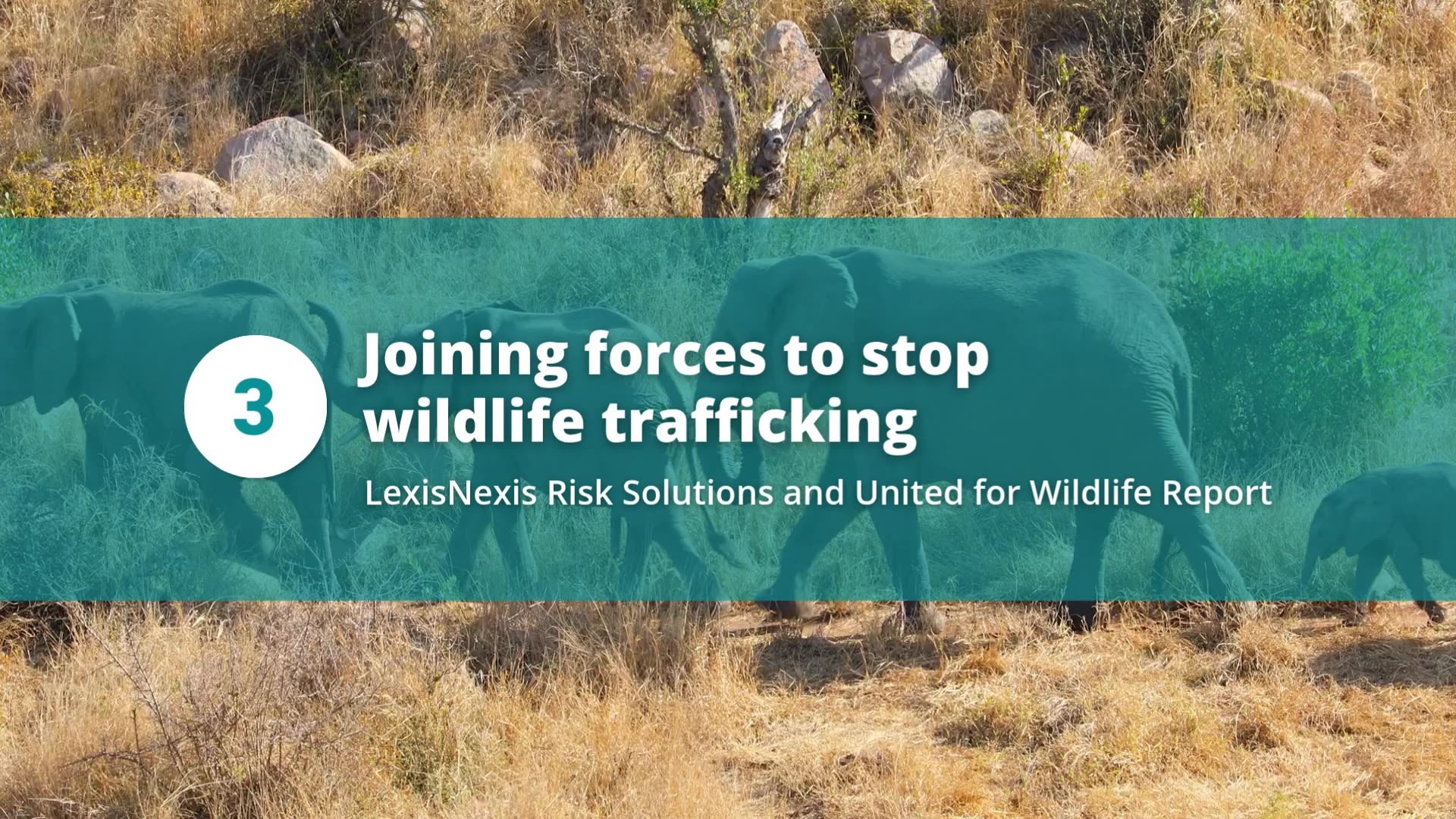
Wildlife trafficking is considered the fourth largest illegal industry worldwide and is estimated to be worth up to $20 billion annually. This transnational crime is a multi-faceted threat fueling interconnected and negative impacts on global security, human health interest and environmental sustainability.
International wildlife trafficking also feeds money laundering crimes that enable criminal organizations to generate revenue to facilitate other crimes tied to human trafficking, narcotics and more.
LexisNexis Risk Solutions, known for its expertise in uncovering criminal networks, has joined forces with United for Wildlife, founded by Prince William and The Royal Foundation in 2013 to protect endangered species from the illegal wildlife trade. This partnership brings together the latest technology and a passionate commitment to protect our world's most vulnerable species, offering a real chance to dismantle the criminal networks driving this crisis.
Businesses associated with wildlife trafficking crimes face detrimental impacts on business continuity, brand reputation and shareholder value. This report, developed with United for Wildlife, investigates trends, routes and red flags around international wildlife trafficking and offers insights on how collaborative efforts and private-public partnerships are making a difference in dismantling transnational trafficking rings.

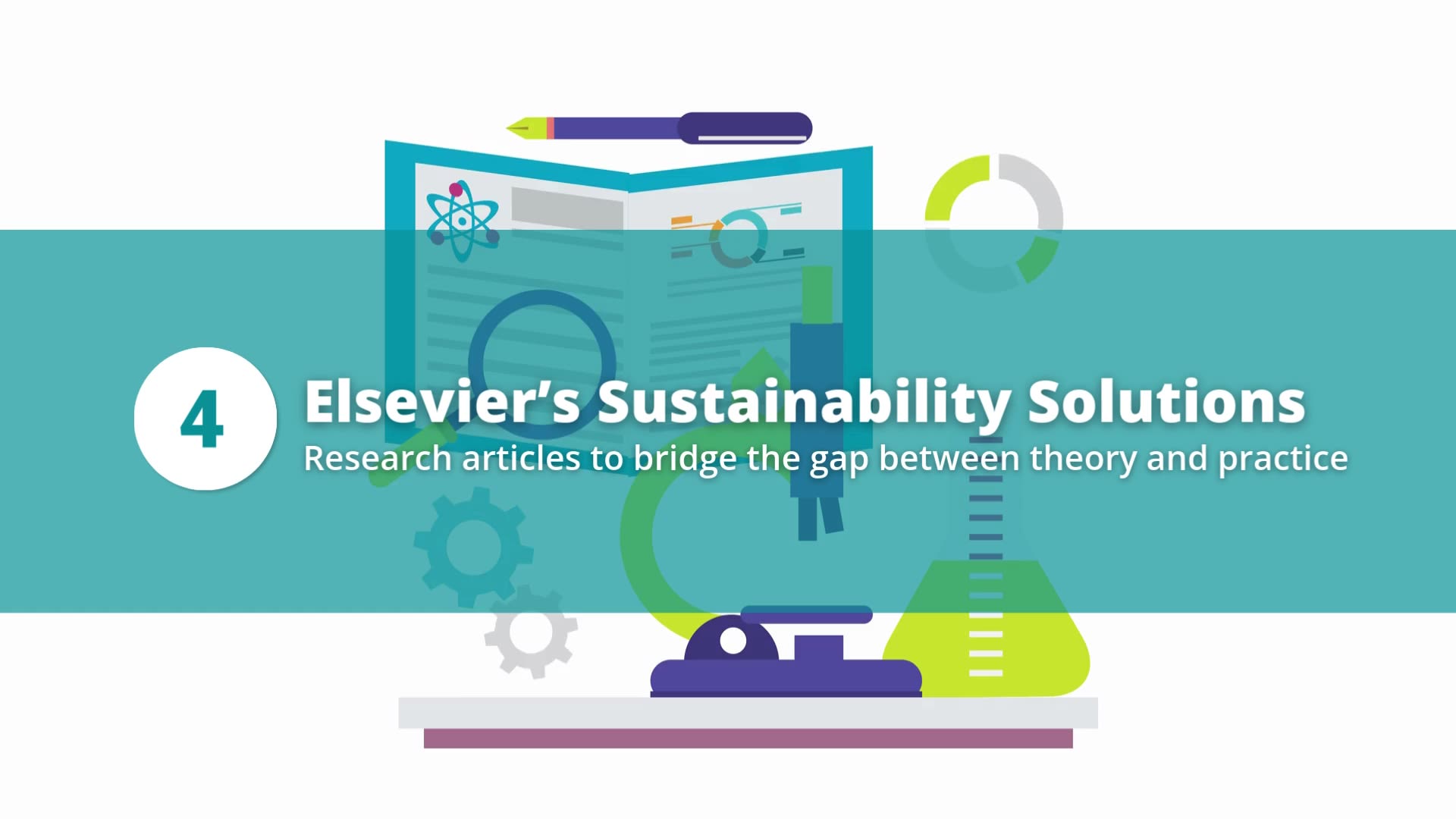
The challenges of achieving sustainable development demand innovative solutions. In response, Elsevier introduced a new article type to its journals called Sustainability Solutions.
This article type aims to highlight practical solutions that can address sustainability challenges and promote sustainable practices. By featuring research that presents novel approaches to sustainability, this article type seeks to foster science-driven decision-making processes that can facilitate the transition to a sustainable future. Additionally, by promoting the transfer of knowledge from academia to practitioners, Sustainability Solutions articles can help bridge the gap between theory and practice and contribute to the development of effective sustainability solutions.


One Earth, Cell Press’ flagship sustainability journal, and part of Elsevier, provides high-quality research and perspectives that advance our ability to better understand and address today’s sustainability challenges. Monthly thematic issues aspire to break down barriers between the natural, social and applied sciences and the humanities, stimulate the cross-pollination of ideas and encourage transformative research.
The journal focuses on submissions that demonstrate a significant conceptual advance with an emphasis on cross-disciplinary approaches. Researchers and policy experts are encouraged to submit work on a broad range of topics including biodiversity and ecosystem services; climate dynamics, adaptation, and mitigation; food systems and nutrition; governance, policy, and international relations and human health and well-being, amongst many more.

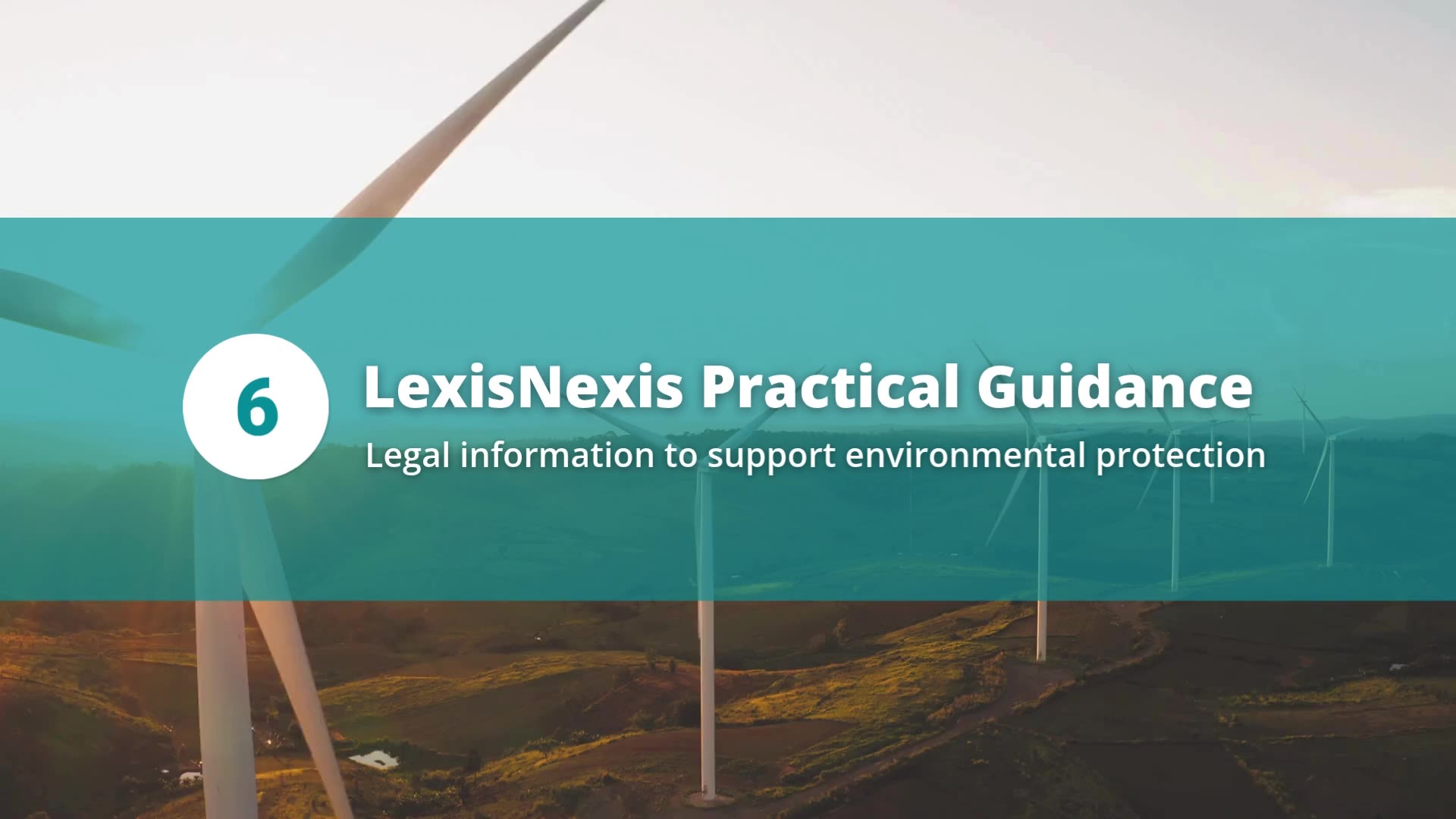
LexisNexis Legal and Professional offers comprehensive resources and analytical tools to support environmental protection by providing up-to-date legal, regulatory and case law information in the environmental sector. Their platform enables practitioners to navigate complex environmental legislation, understand compliance requirements and stay informed about policy changes, enabling businesses, organisations and legal professionals to make informed decisions when addressing environmental challenges and enforcing regulatory standards.
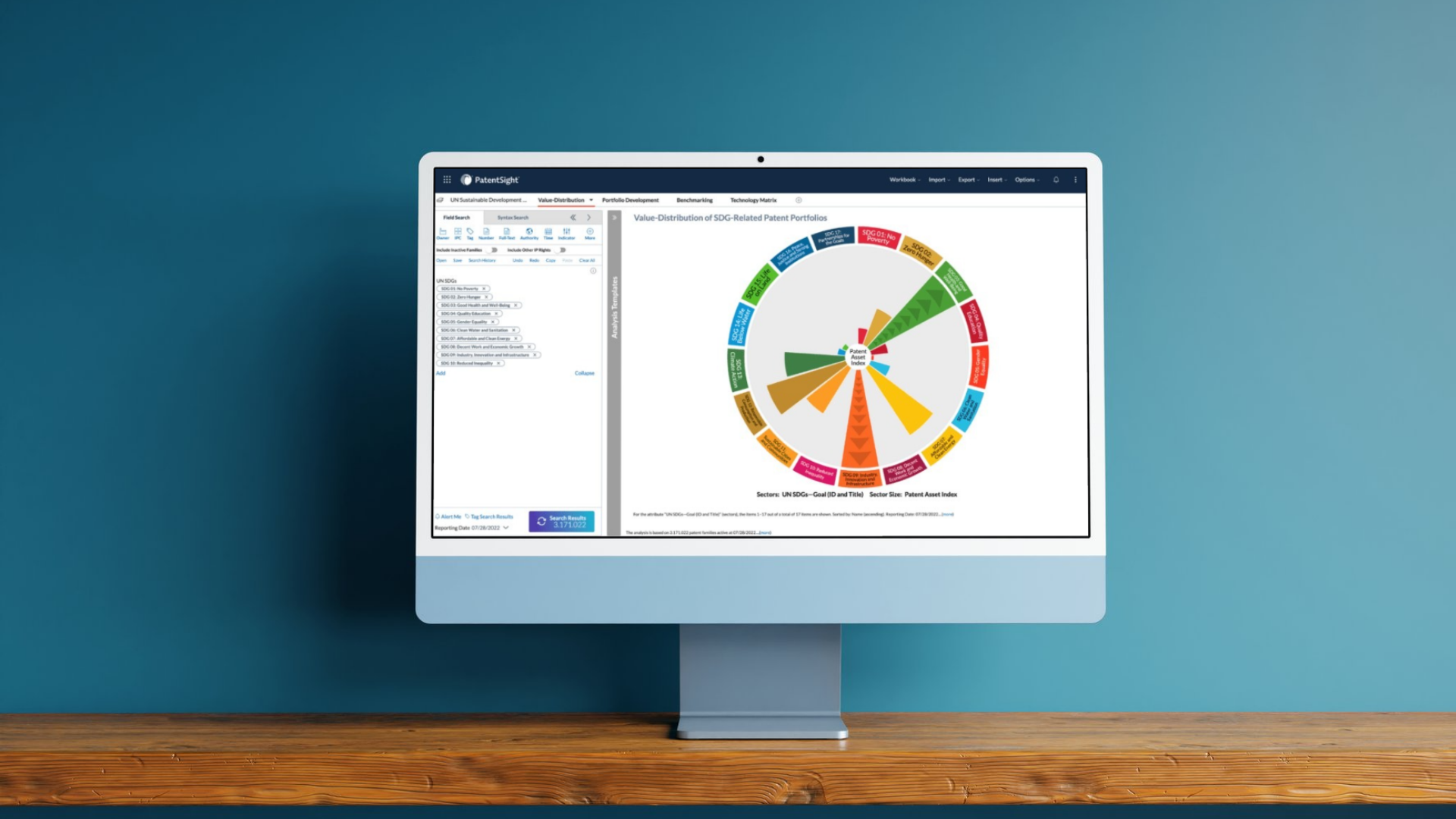
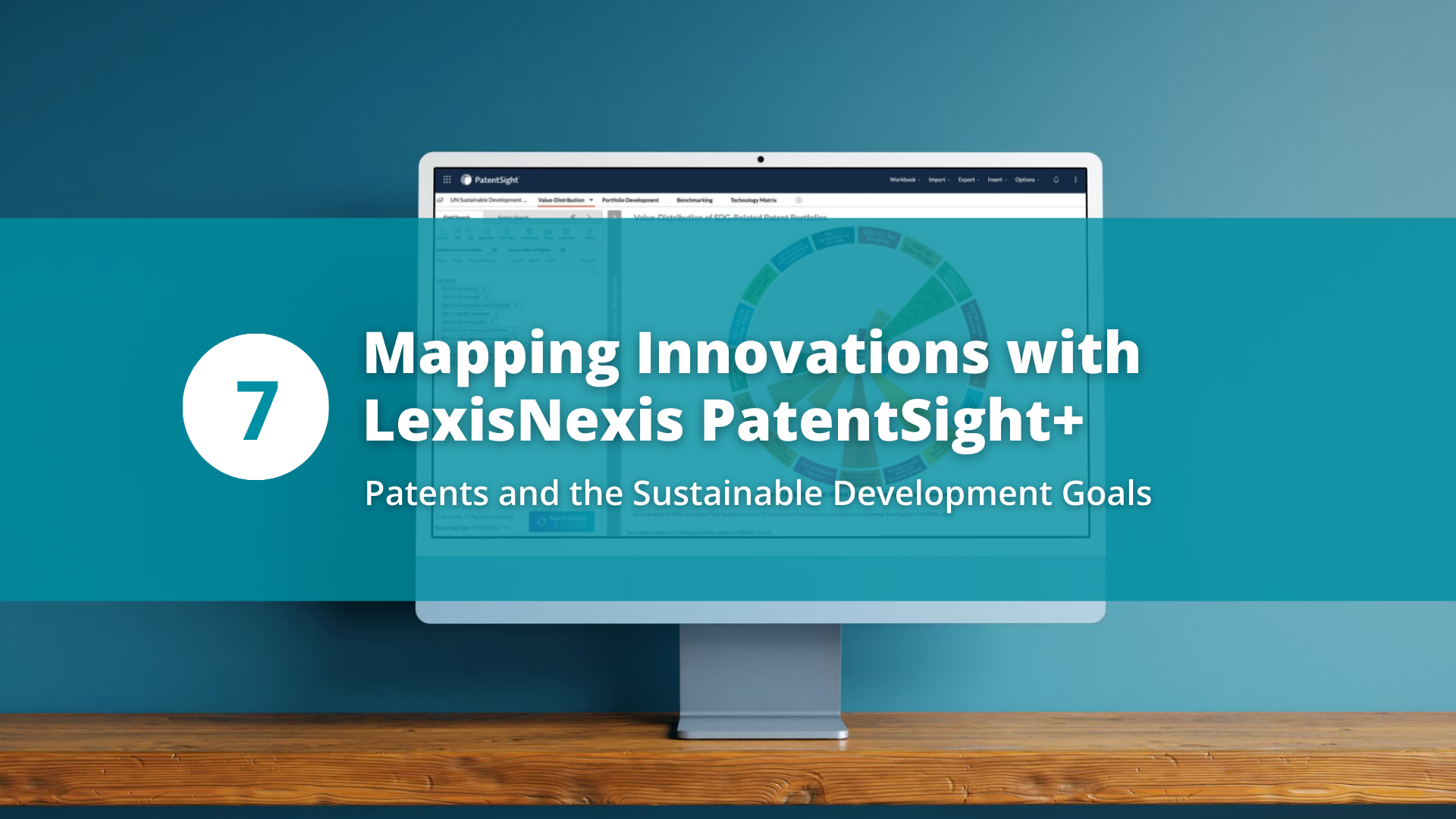
In collaboration with the World Intellectual Property Organization (WIPO), LexisNexis Legal & Professional published “Mapping Innovations: Patents and the Sustainable Development Goals”. The report analyses global patent trends mapped to the United Nations’ Sustainable Development Goals.
LexisNexis Intellectual Property Solutions, as the only patent data provider linking global patent data with the UN Sustainable Development Goals, identified 100 distinct sustainable technology categories spanning renewable energy, transportation, agriculture, medical devices and more. The report provides a comprehensive overview of the role of innovations and intellectual property in promoting sustainable development globally across various sectors.
By leveraging comprehensive LexisNexis global patent data and its patent analytics suite LexisNexis PatentSight, the authors conducted extensive patent research and data analysis examining patenting activity and trends related to key SDGs.
Key insights from the report include:
- 13 out of 17 SDGs are represented within global patent data, with SDG 9 ‘Industry, Innovation and Infrastructure,’ containing the highest volume of patents. This reflects the expansive scope and diverse technology landscape encompassed within this goal.
- SDGs focused on climate action and clean energy (SDG 13 and 7) exhibit the highest growth rates in recent years, highlighting increasing attention to environmental sustainability.
- Chemistry and Instruments are the technology sectors with the most significant share of SDG-relevant patents, driven by pharmaceutical and medical device innovation.
- Environmental technologies strongly align with SDGs on clean water, sanitation and responsible production (SDG 6 and 12).
- China has seen exponential growth in SDG-related patents, though its share is still below the global average.
- Academic institutions play a major role in SDG innovation across regions, with the University of California leading for much of the past two decades before being overtaken recently by the Chinese Academy of Sciences.
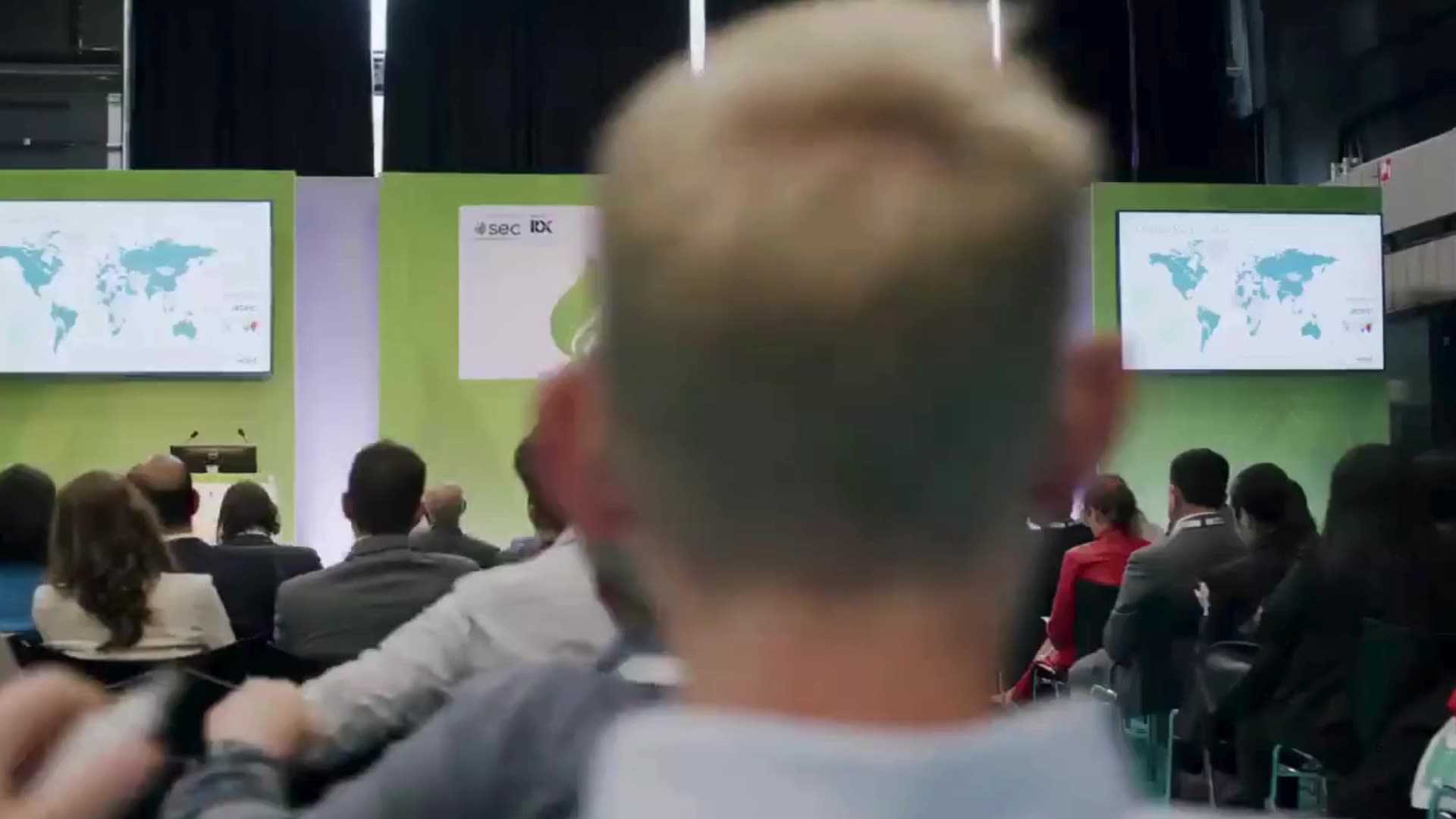
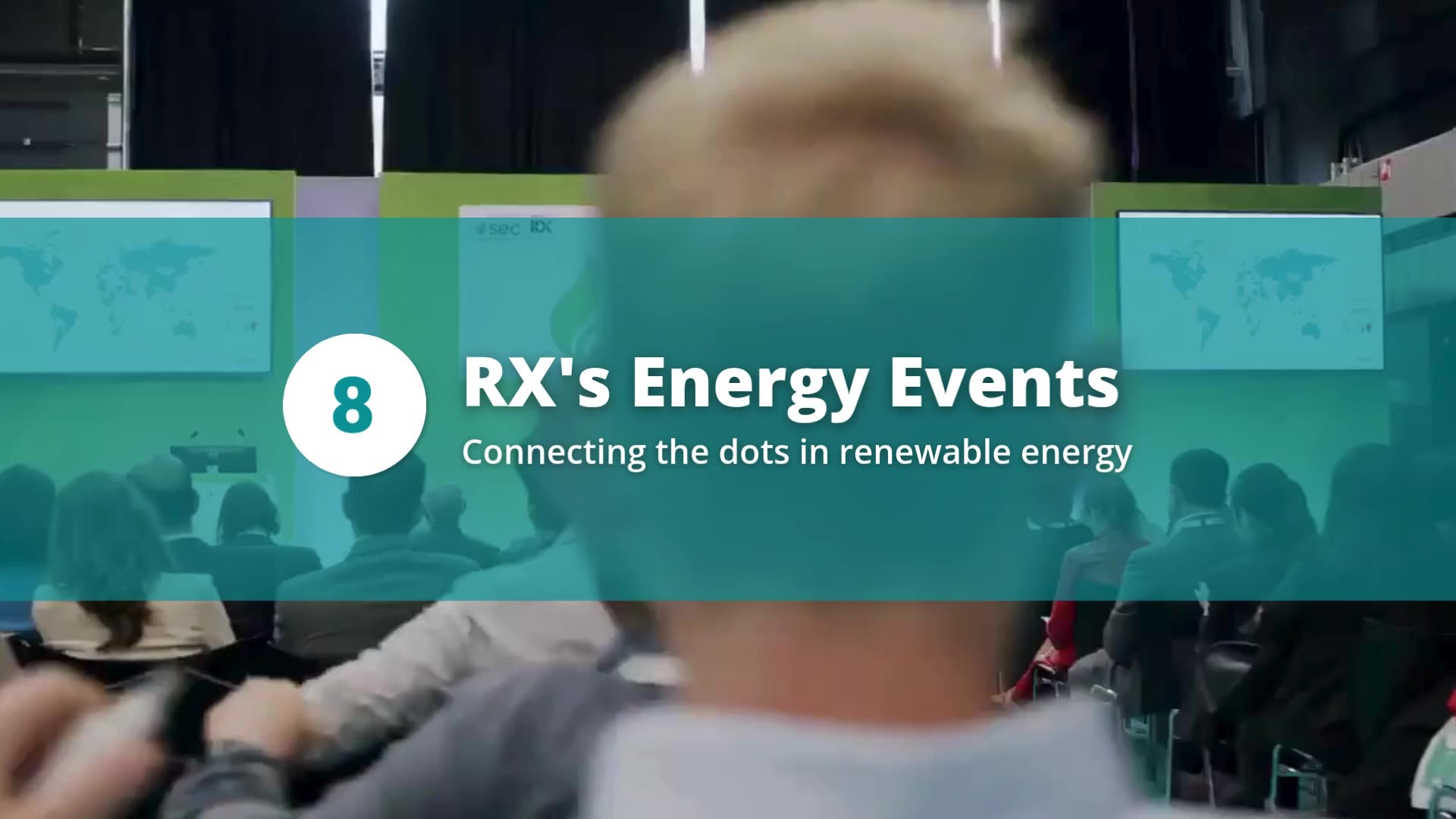
RX’s energy events bring together leading experts, industry innovators and influential policymakers to explore and address the challenges and opportunities within the energy sector. These events feature in-depth panel discussions, keynote presentations, and interactive workshops that delve into the latest technological advancements, strategic insights and regulatory developments impacting the industry.
All-Energy, the UK’s largest low-carbon and renewables event, takes place every year over two days in May, and the range of exhibitors highlights the strides the world is making in renewable technology.
All-Energy Australia, the southern hemisphere’s largest clean-energy event, takes place in Melbourne in October and has for the past 15 years served as a vital platform for industry professionals, experts and enthusiasts to gather and witness the latest developments and innovations in the renewable-energy sector. With over 450 exhibitors in 2024, All Energy Australia not only showcased cutting-edge technologies in areas from solar power to electric transportation, but also functioned as a knowledge-sharing hub.
The World Future Energy Summit continues to be a driving force for innovation, collaboration, and thought leadership in renewable energy and sustainability. As the largest B2B gathering under the Abu Dhabi Sustainability Week umbrella, and now entering its 18th edition, the Summit has established itself as a key platform bridging policy with real-world action.
“RX's global energy portfolio - including shows such as World Future Energy Summit, All-Energy and World Smart Energy Week - provide the platform for thought leadership and the vital conversation on clean energy transition.
In 2024, RX added to it's existing portfolio of energy shows with the acquisition of Sustainable Energy Conferences Ltd (SEC), owner and organiser of World Hydrogen Summit (Rotterdam, Netherlands), Hydrogen Americas (Washington, DC), Hydrogen Asia-Pacific (Brisbane, Australia) and the Sustainable Energy Council brand. The events are focused on the rapidly developing hydrogen economy, a crucial component in the transition to a clean energy future, and cover the entire value chain, including production, transmission, distribution and storage, and end-user sectors such as heavy industry and transportation.

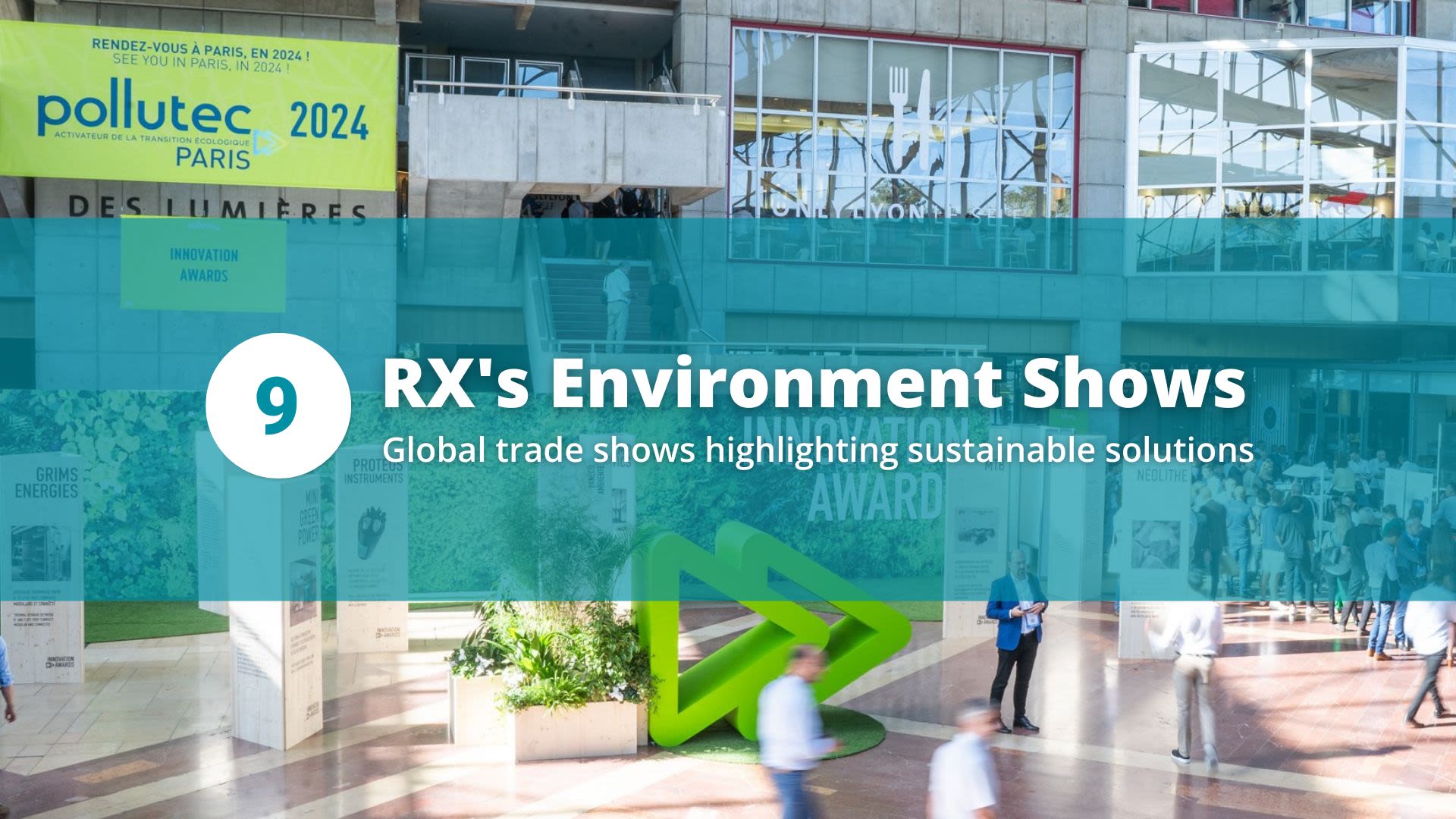
Through its shows such as Pollutec and Waste Expo Australia, RX convenes stakeholders, including government, technology innovators, companies, industry and infrastructure experts to explore solutions shaping a more sustainable future from policy and procurement to technology and transformation. Waste Expo Australia is the nation’s leading event for driving practical progress in waste, recycling, and resource recovery.
Pollutec, Europe's largest trade show for sustainable solutions covers eleven sectors, including sustainable cities and buildings, biodiversity and natural habitats, water resource management and energy efficiency. The show highlights technologies, equipment and services to manage resources and implement sustainable development. It also offers a rich program of events, with over 20 speaking areas fostering vital conversation.
In 2025, RX Japan launched 'Recycle Tech Japan’, a new exhibition focused on recycling technologies and circular economy solutions, taking place at Makuhari Messe convention centre in Chiba, Japan.
Recycle Tech Japan is designed to address the growing need for sustainable resource management and recycling infrastructure to advance Japan’s Circular Economy Goals by showcasing innovations that span the entire recycling ecosystem. The exhibition will bring together material developers, manufacturers, logistics providers, retailers, waste management companies, and municipal leaders to develop practical solutions for recycling and product life cycle redesign.
The show will also feature scalable and commercially viable innovations such as AI-powered sorting systems, recycling design software and integrated scrap collection and processing solutions that make recycling not only sustainable but also economically attractive.
“Our goal is to create an environment where businesses, policymakers, and manufacturers can come together to share ideas and develop solutions that make a real difference for the planet and for the industry.”
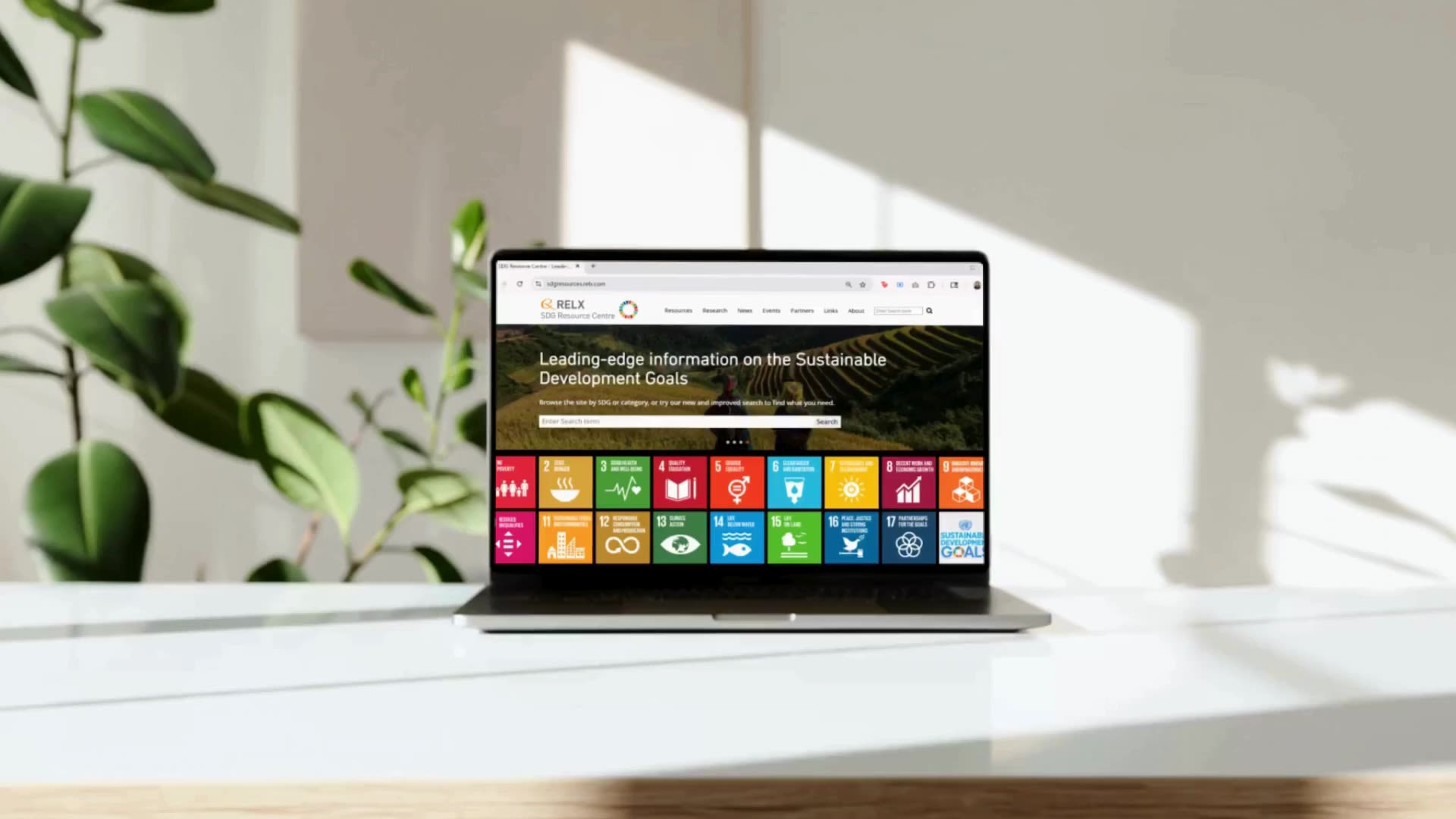
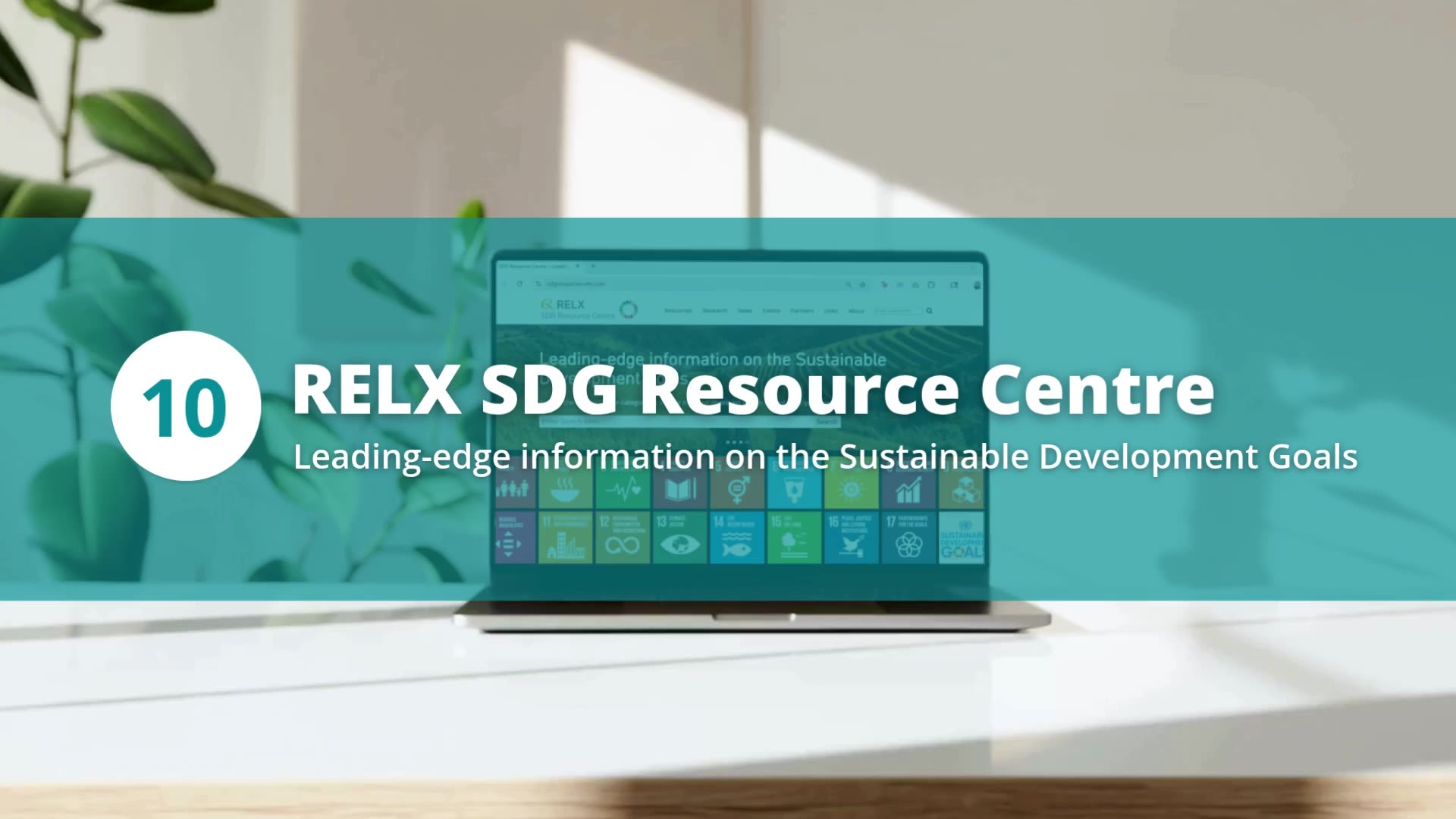
In 2017, RELX launched the free to access SDG Resource Centre which contains articles, tools, data and news from across RELX businesses and key partners. The SDG Resource Centre is aimed at customers, investors, employees, NGOs, corporate peers, and the public and is designed to support the UN in implementing the United Nations Sustainable Development Goals and broadening awareness and understanding. There were more than 300,000 unique users in 2024.
Featured content includes articles, reports, legal practical guidance, tools, webinars and videos and events, categorised by SDG and topic area. Throughout the year, and with the support of our colleagues from Elsevier, the RELX SDG Resource Centre curates monthly Special Collections.
To mark the United Nation’s COP30 climate conference Elsevier curated a free special issue featuring the latest research and climate insights including articles such Introduction to transportation in a net-zero world and Energy and Climate Change: The transition to 100% clean, renewable energy.
The SDG Resource Centre also features the SDG News Tracker with up to the minute news – and over the last 30 days – about the SDGs from around the world.


